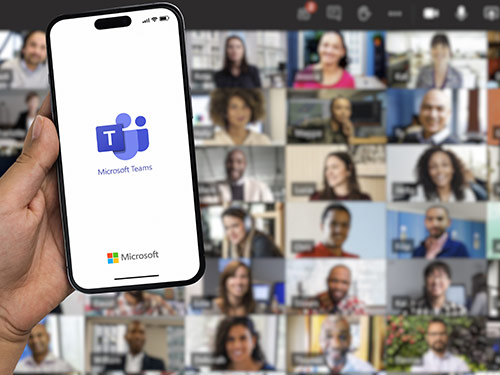Hybrid work, in which employees remain at home, return to the office, or split time between each will create a new paradigm for workplace communications and collaboration. Key a successful hybrid work strategy is leveraging team collaboration to enable contextual work. Metrigy’s global Workplace Collaboration: 2021-22 research study of 476 end-user organizations found that overall, 47.3% of organizations are using team collaboration apps today, deployed to nearly half (49.7%) of employees.
To gain insight into team collaboration deployment and management approaches that correlated with success, we looked at how the 85 companies in our study with the highest measurable success in terms of cost savings, revenue gain, and / or productivity improvements were using team collaboration. We found the following:
- Much broader roll-outs – 76% of employees in successful organizations will use team collaboration by the end of 2021 versus just 60% of all participating companies
- Team collaboration as a work hub – Successful companies are integrating apps ranging from product management to meeting and conferencing to workflow into their team collaboration apps, making them a unified hub in which individuals can manage tasks and collaborate with others in the context of specific activities
- Extending team collaboration apps beyond company boundaries – allowing external participants into team spaces, or federating their team channels with partners, suppliers, and even customers, through capabilities like Slack Connect. Federation, compared to the use of guest accounts or third-party integration services had the highest correlation with success
- Adopting a proactive approach to security – ensuring that content stored within team collaboration apps is protected and governed in accordance with regulatory and risk prevention requirements
- Leveraging team collaboration to manage remote employees – including activities such as regular manager check-ins with team members, polling of employees, using team channels to issue praise and awards, and establishing channels for social engagement in topics ranging from exercise, to gaming, to cooking
Successfully adopting team collaboration applications allows companies to realize the highest return for their investment. Among successful companies, we see measurable improvements in productivity, cost savings, and revenue, as well as reductions in the number and length of meetings, and the use of email to communicate.

As team collaboration increasingly becomes a core means of collaboration for the hybrid workforce, make sure you are maximizing return on investment by broadening rollouts to the widest possible audience, integrating apps, workflows and data into your team spaces, extending team spaces beyond company boundaries, addressing security, governance, and compliance concerns, and leveraging team collaboration to promote organization-wide culture.





